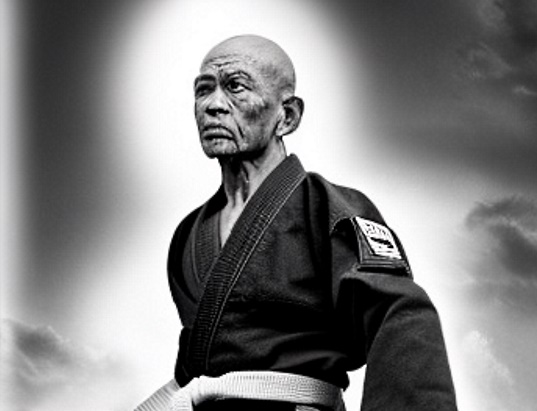My son called me yesterday. He’s been training in BJJ for a while now but is still a white and had just, for the first time, subbed a blue belt. This is a big deal when you are a beginner, because it shows you, without a doubt, that you’re making progress. Because the blue belts submit white belts for a very long time before the roles slowly start to reverse a little. The disparity in skill is just too big.
I told him I was proud of him and how he’ll quickly end up being a much better grappler than I am.
I remember being a young martial artist and having these benchmark moments. For me, the first time was when I sparred with a jiu-jitsu brown belt when visiting another school.

I was 16 and he was an adult. I hadn’t been training kung fu that long, but we sparred a lot and he clearly didn’t. But he was a brown belt, about to do the black belt exam, so I just assumed he would kick my ass. It was the reverse: I landed kicks and sweeps on him at will and he seemed very frustrated at the end.
Those moments stay with you forever, regardless of how your training goes afterward. For me, it planted a seed that, after overcoming many more hurdles, would bloom into self-confidence. Because if I could beat that brown belt, maybe if I trained real hard I could beat others who were better than him?
That was over 35 years ago. I’m still training and learning. The benchmark moments are different now and happen less often. When they do, the same feeling of joy and drive to train harder are still there.
Looking back at this post I wrote ten years ago, The aging martial artist: how to keep on fighting when you get older, I still agree with what I wrote there.
I look forward to writing about this again in ten years.


Mark Apgar says
One of my benchmark moments: I was at a martial arts camp with a bunch of Green Berets (US Army Special Forces), and we were working through some knife drills and then sparring. I was completely flabbergasted that I kept landing hits on them far more often than they landed on me, even though I’m certainly not an expert at knife fighting.
Obviously, they were far more trained with handguns, rifles, explosives, and team tactics than I was likely to ever be, and I’d never get close enough with a knife to make a difference :-D, but it was still a great memory.
Wim says
This is one of my more controversial posts. https://wimsblog.com/2013/03/the-myth-of-military-hand-to-hand-combat-systems/
In short, they have so much more to train than H2H combat. That said, I found their mindset to handle lethal force violence is typically much better than the average martial artist. That said again, I’ve seen elite soldiers have their own “Oh shit” moments when they train with somebody who is really good with a knife. As in, they discover there is a lot more to it than covered in their own training.
Same thing re. snipers. IIRC, there are lots of competitions in which civilians beat SWAT guys, Marine snipers, etc. Simply because that is all the civilians do and the others need to spend time training in additional skills.